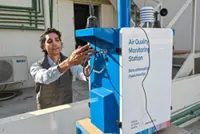In this special edition of Planetary Health Matters, Wong Pui Yi and Hema Sulakshana Mahadevan join columnist Dr Jemilah Mahmood to persuade Malaysian ministers and negotiators at the Global Plastics Treaty to seize the moment and shape an agreement that could transform our planet’s future.
AS proud Malaysians, we are deeply concerned about the final round of negotiations for the Global Plastics Treaty in Busan, South Korea, that are currently ongoing until Dec 1. The decisions made in Busan will not only shape our future relationship with plastics, but also determine the trajectory of planetary health.





